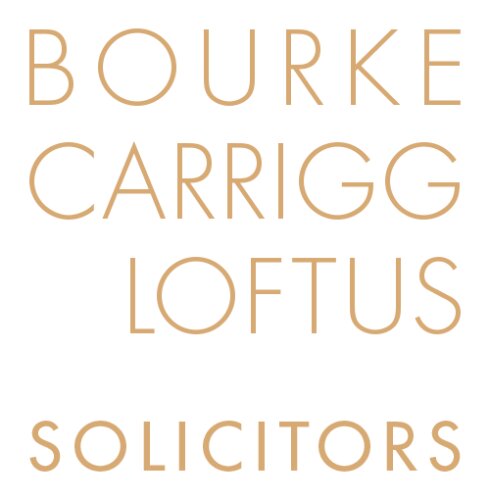Best Sex Crime Lawyers in Ireland
Share your needs with us, get contacted by law firms.
Free. Takes 2 min.
Or refine your search by selecting a city:
List of the best lawyers in Ireland
About Sex Crime Law in Ireland
Sex crime law in Ireland encompasses a range of offenses that violate sexual autonomy and discretion. These laws are designed to protect individuals from acts such as sexual assault, rape, incest, and other forms of sexual violence or coercion. The legal system in Ireland aims to ensure justice for victims and uphold strict penalties for perpetrators. Sexual offenses are prosecuted under various legislations, including the Criminal Law (Sexual Offences) Act 2006 and subsequent amendments.
Why You May Need a Lawyer
There are numerous situations where individuals might require legal advice in the realm of sex crimes. If you are a victim seeking justice, it is crucial to have a legal representative who can guide you through the reporting process, help gather evidence, and represent you in court. Similarly, if you are accused of a sex crime, having a lawyer is essential to ensure your rights are protected, to help navigate the complexities of criminal law, and to build a defense. Lawyers can also provide assistance for witnesses involved in sex crime cases who may need guidance.
Local Laws Overview
The Criminal Law (Sexual Offences) Act 2006 and its amendments are key pieces of legislation governing sexual offenses in Ireland. Some major aspects include:
- Consensual Definition: Consent must be freely given and mutual. Coercion or manipulation negates consent.
- Age of Consent: The legal age of consent is 17 years. Engaging in sexual activities with persons under this age constitutes statutory rape.
- Sexual Assault: Unwanted sexual contact that violates another's sense of bodily integrity is punishable vigorously.
- Online Exploitation: Laws prohibit online sexual exploitation, including child pornography and cyber harassment.
- Mandatory Reporting: Certain offenses require mandatory reporting to authorities, ensuring swift action against perpetrators.
Frequently Asked Questions
What is the age of consent in Ireland?
The legal age of consent in Ireland is 17 years. Engaging in sexual activities with someone below this age is illegal and considered statutory rape.
What constitutes sexual assault in Ireland?
Sexual assault involves any unlawful sexual contact with another person without their consent. It is seen as a severe violation of personal autonomy and is punishable by law.
Can the accused in a sex crime case request anonymity?
In Ireland, the accused can seek reporting restrictions to maintain anonymity until a conviction is made to ensure a fair trial.
How are digital crimes relating to sex offenses handled?
Digital sex crimes, such as sextortion or distribution of indecent images, are treated seriously. The law implicates severe penalties for those engaging in such acts.
What should I do if I'm a victim of a sex crime?
Promptly report the incident to the Gardaí. Seek medical and psychological support, and consider consulting a solicitor to guide you through the legal process.
Are there support services available for sex crime victims?
Yes, numerous organizations in Ireland specialize in supporting sex crime victims, providing emotional, medical, and legal assistance.
What defenses are available if accused of a sex crime?
Defenses can vary depending on the case details. This can include mistaken identity, consensual acts, or false allegations. It’s crucial to consult with a lawyer to determine the best strategy.
Is there a statute of limitations for reporting sex crimes in Ireland?
Generally, there is no statute of limitations for serious sex crimes like rape or sexual assault in Ireland, meaning they can be reported at any time.
How are child victims of sex crimes protected during testimony?
Children can provide evidence via video link or behind screens in court to ensure their comfort and safety are prioritized.
What penalties do sex offenders face upon conviction?
Penalties can range from fines and community service to lengthy imprisonment. Offenders may also be placed on the sex offenders register, impacting future freedom and employment opportunities.
Additional Resources
Several resources and organizations in Ireland provide support and information relating to sex crimes. These include:
- The Rape Crisis Network Ireland (RCNI)
- Dublin Rape Crisis Centre (DRCC)
- The Gardaí National Protective Services Bureau
- Tusla, Child and Family Agency for issues involving minors
- Legal Aid Board for legal assistance and advice
Next Steps
If you need legal assistance concerning a sex crime, it is essential to act promptly. Here is what you should consider doing:
- Contact a Lawyer: Look for a solicitor specializing in criminal law, preferably with experience in sex crimes.
- Gather Evidence: Collect any evidence relevant to your case, such as messages, photographs, or witness information.
- Seek Support: Reach out to support organizations for guidance and emotional backing.
- Report the Crime: Initiate contact with the Gardaí to formally record and report the incident or seek legal protection and advice.
- Maintain Confidentiality: Refrain from discussing case specifics publicly or on social media to safeguard your interests.
Lawzana helps you find the best lawyers and law firms in Ireland through a curated and pre-screened list of qualified legal professionals. Our platform offers rankings and detailed profiles of attorneys and law firms, allowing you to compare based on practice areas, including Sex Crime, experience, and client feedback.
Each profile includes a description of the firm's areas of practice, client reviews, team members and partners, year of establishment, spoken languages, office locations, contact information, social media presence, and any published articles or resources. Most firms on our platform speak English and are experienced in both local and international legal matters.
Get a quote from top-rated law firms in Ireland — quickly, securely, and without unnecessary hassle.
Disclaimer:
The information provided on this page is for general informational purposes only and does not constitute legal advice. While we strive to ensure the accuracy and relevance of the content, legal information may change over time, and interpretations of the law can vary. You should always consult with a qualified legal professional for advice specific to your situation.
We disclaim all liability for actions taken or not taken based on the content of this page. If you believe any information is incorrect or outdated, please contact us, and we will review and update it where appropriate.
Browse sex crime law firms by city in Ireland
Refine your search by selecting a city.
















